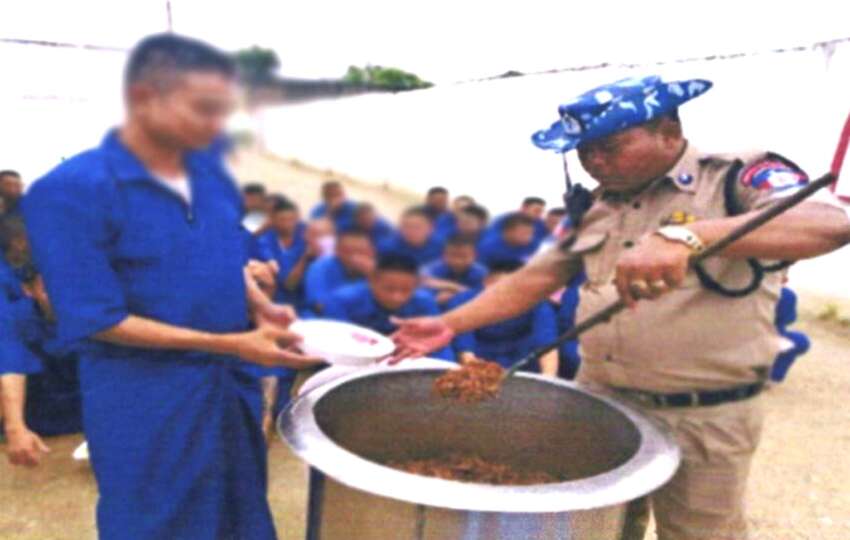
Political Prisoners Network Myanmar (PPNM) Central Committee member Ko Thet Tun Oo has revealed that prisoners across Myanmar’s prisons are suffering from malnutrition as authorities have reduced food rations, citing budget constraints, and are only serving rice with watery bean soup. The situation has led to widespread nutritional deficiencies among inmates, with many experiencing mobility issues in their lower bodies. Prison facilities have set a weekly ration of 14 meals, including both lunch and dinner times. Prisoners receive only one egg and three two-inch pieces of fish for four meals total, with the remaining meals consisting solely of rice and watery bean soup.
Due to the reduction in meat portions and lack of access to nutritious food, prisoners are experiencing physical weakness and inability to move their lower bodies, a condition commonly referred to as ‘paralysis’ in prison terms. According to PPNM’s report, approximately 15 percent of the total population in Myingyan Prison is suffering from this paralytic condition. The situation in Meiktila Prison has also deteriorated significantly, with reports of spoiled food being served and meat dishes being provided in an unsanitary state with persistent foul odors. Similar conditions have been reported in Mandalay’s Obo Prison, where even the rationed eggs are no longer being provided.
In Loikaw Prison, the quality of rice used for cooking is poor, leading to dietary issues. Prisoners receive dried fish twice a week and eggs twice a week, with the dried fish portions being only two inches in size and just one egg per serving, while meat dishes are not provided at all. Although Paungde Prison serves meat dishes four times a week, the portion sizes have significantly decreased. Daik-U Prison inmates are also not receiving adequate amounts of meat and eggs. In Pathein Prison, inmates sometimes have to eat spoiled rice due to heat exposure, and chicken meat and eggs have been replaced with boiled fish served four times a week in the evenings. However, the fish is merely boiled without proper cleaning, making it nearly inedible due to its putrid smell.
Due to these widespread food issues across various prisons, PPNM has called on the public to support political prisoners by providing assistance through care packages. Contributions can be made through NUG Pay accounts and SDB Bank accounts to help improve the prisoners’ food situation. The network has specifically appealed for focused attention and support for political prisoners facing these severe dietary challenges. The deteriorating conditions in prisons reflect a broader crisis in Myanmar’s penal system, with basic nutritional needs of prisoners being severely compromised due to claimed budget constraints and reduced rations.



